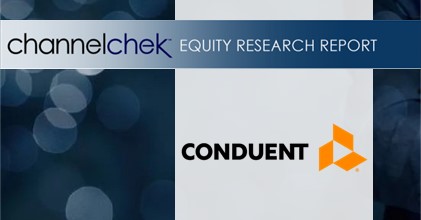Research News and Market Data on Snail
May 1, 2025 at 8:30 AM EDT
CULVER CITY, Calif., May 01, 2025 (GLOBE NEWSWIRE) — Snail, Inc. (Nasdaq: SNAL) (“Snail Games” or the “Company”), a leading global independent developer and publisher of interactive digital entertainment, today highlighted major milestones across its portfolio for April 2025, including expansions within the ARK franchise, a content milestone for Bellwright, and multiple IP launches under Wandering Wizard, the Company’s independent indie publishing label.
ARK Franchise Strengthens with New Content
Snail Games continued to build on the momentum of its flagship sandbox survival IP with two major content updates:
- Eggcellent Adventure Returns to ARK: Survival Ascended
The seasonal Eggcellent Adventure event reinforces seasonal events as a key strategy for retention and re-engagement.
- Extinction Map Launches in ARK: Ultimate Mobile Edition
The rollout of the Extinction map on mobile represents a continued push into high-growth mobile markets. This update supports Snail Games’ long-term vision of delivering premium survival experiences across multiple platforms, making the IP more accessible to a broader audience of players.
In addition to new content releases, Snail Games continues to prepare for the 10-year anniversary of its flagship ARK: Survival Evolved, with the anticipated upcoming release of its new expansion map DLC, ARK: Aquatica.
Bellwright Marks One Year in Early Access with Major Update
April 2025 also marked the one-year Early Access anniversary for Bellwright. The update introduced significant new content and player-requested features. With a growing player base and positive community sentiment, Bellwright reflects Snail’s commitment to long-term support and scalable IP growth.
Notable Update Features include:
- Animal Husbandry & Advanced Resource Systems
Players can now raise livestock through new husbandry structures, producing essential resources like milk, eggs, and meat. Paired with the new Butchery system, this deepens the economy and rewards strategic village management.
- Fishing & Exploration Enhancements
A full-featured fishing system with diverse fish types, mini-games, and a Fishing Hut adds immersive gameplay variety. New locations, including caves, swamps, and mountain trails, further expand the world’s exploration potential.
- Quality-of-Life Upgrades & Narrative Expansion
A major crafting UI overhaul, savable squad rosters, and over 25 new quests enhance both accessibility and long-term player retention.
Wandering Wizard Celebrates New Game Launches and Acquisition
Snail Inc’s indie publishing label Wandering Wizard deepened its footprint in the horror space with two notable releases and a strategic publishing deal.
- Launches of The Cecil: The Journey Begins and Chasmal Fear
In April 2025, Wandering Wizard expanded its catalog with the launch of two horror titles, The Cecil: The Journey Begins and Chasmal Fear. Both games highlight the creativity and passion of small indie teams — with The Cecil: The Journey Begins crafted by a solo developer and Chasmal Fear brought to life by a duo of brothers. These releases underscore Wandering Wizard’s commitment to empowering independent creators and bringing bold, fresh voices to the gaming community.
- Publishing Rights Secured for Whispers of West Grove
The acquisition of publishing rights to Whispers of West Grove adds another indie horror experience to the Wandering Wizard portfolio, aligning with Snail Games’ strategy of identifying high-potential indie IPs with organic audience momentum.
These achievements reflect Snail Games’ continued execution across its core franchises, emerging IPs, and strategic publishing initiatives. As the Company moves into the second quarter, it remains focused on the 10-year anniversary of ARK: Survival Evolved, the anticipated launch of the ARK: Aquatica DLC, expanding its global reach, investing in scalable growth opportunities, and delivering fresh experiences that engage players across multiple platforms and genres.
For Creators interested in collaborative opportunities reach out to creatordirect@noiz.gg
For media inquiries, interview requests, or additional details, please contact: press@snailgamesusa.com
About Snail, Inc.
Snail, Inc. (Nasdaq: SNAL) is a leading, global independent developer and publisher of interactive digital entertainment for consumers around the world, with a premier portfolio of premium games designed for use on a variety of platforms, including consoles, PCs, and mobile devices. For more information, please visit: https://snail.com/.
Forward-Looking Statements
This press release contains statements that constitute forward-looking statements. Many of the forward-looking statements contained in this press release can be identified by the use of forward-looking words such as “anticipate,” “believe,” “could,” “expect,” “should,” “plan,” “intend,” “may,” “predict,” “continue,” “estimate” and “potential,” or the negative of these terms or other similar expressions. Forward-looking statements appear in a number of places in this press release and include, but are not limited to, statements regarding expansions within the ARK franchise, development of new content, a content milestone for Bellwright, and multiple IP launches under Wandering Wizard, the Company’s independent indie publishing label. You should carefully consider the risks and uncertainties described in the “Risk Factors” section of the Company’s Annual Report on Form 10-K for the fiscal year ended December 31, 2024, which was filed by the Company with the SEC on March 26, 2025 and other documents filed by the Company from time to time with the SEC, including the Company’s Forms 10-Q filed with the SEC. The Company does not undertake or accept any obligation to release publicly any updates or revisions to any forward-looking statements to reflect any change in its expectations or any change in events, conditions, or circumstances on which any such statement is based.
Investor Contact:
John Yi and Steven Shinmachi
Gateway Group, Inc.
949-574-3860
SNAL@gateway-grp.com















